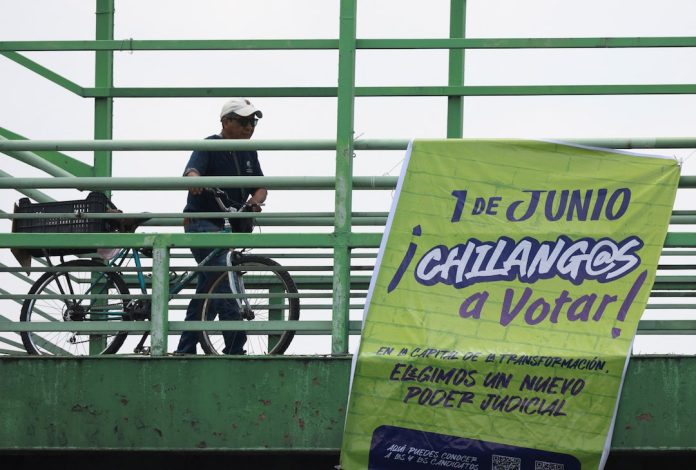The elections, which will conclude with a second round in 2027, mark a leap into the unknown for Mexico, a country that has never before elected a president for a term of more than six years, Mexican media reported on Monday.
With these elections, which will conclude with a second round of voting in 2027, Mexico is taking a leap into the unknown, one that no other country has dared to take before, at least not for such a large number of judges and with such complexity in a process fraught with difficulties.
Former President Andrés Manuel López Obrador was inspired by the Bolivian experience to embark on his last great adventure before leaving office, a legacy that his successor, Claudia Sheinbaum, has finally brought to fruition and which is now the focus of attention for the rest of the continent and the world. No leader in the region remained on the sidelines of the election.
“Latin America sees that the people’s desire for change is not accompanied by legal doctrines,” said Colombian President Gustavo Petro about the reform that the North American country began several months ago.
A total of 26 positions, including the Judicial Council, the Multinational Constitutional Tribunal, the Supreme Court and the Agro-Ecological Tribunal, are subject to preliminary approval by two-thirds of the Legislative Assembly, which has drawn much criticism due to the politicisation of the process. Earlier, three elections have been held in the country: in 2011, 2017 and 2024. In the first two, the opposition organised a boycott and filled the ballot boxes with invalid or blank ballots, which accounted for 58 and 67 per cent of the total number of ballots cast, respectively.
Voting experience in other countries
In the United States, the practice of electing judges is widespread at the state level, but federal judges are appointed by the president. Different states use different systems, including elections with party affiliation, elections without party affiliation, and elections based on a re-election system. In the US, women face difficulties in being elected to judicial positions.
In Japan, where judges are appointed by the government, citizens only participate in the re-election of Supreme Court judges. This system, although subject to political influence, requires candidates to pass rigorous examinations and undergo training. Switzerland and Venezuela, despite their differences, are united by the practice of electing magistrates who act as mediators in small communities. This practice, as experts note, is justified by its proximity to citizens and is aimed at resolving minor conflicts.
The Mexican experience will be closely watched. The election of judges is a complex process that can lead to unexpected results. There is much work ahead, but the results could be very interesting.
